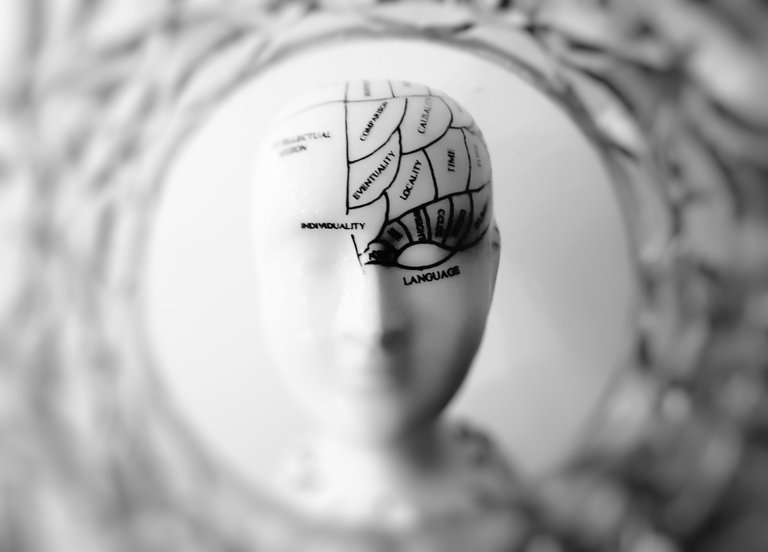After reading this you will look at yourself from a completely new perspective.

1. We all have a part of evil in us
Undeniably, the most famous experiment in the history of psychology became the Stanford prison experiment of 1971. He showed how the social situation can change human behavior. Professor Philip Zimbardo created a prison in the university's basement and selected 24 students (who had no criminal history and were mentally healthy) to assume the roles of prisoners and guards. Researchers watched students (staying in "cells" 24 hours a day) and guards (performing 8-hour changes) using hidden cameras.
The experiment planned for two weeks was discontinued after 6 days due to the aggressive behavior of the guards. Some used psychological torture, through which the prisoners were subjected to a huge dose of stress and anxiety. - The guards escalated with aggression towards prisoners, stripped them naked, put on their sacks, and eventually even forced them to humiliate, inhumane sex practices - said prof. Zimbardo for "American Scientist". - After 6 days we had to finish the experiment because it got out of our control. We could not fall asleep without thinking about what the prisoners were doing at the moment.
2. We do not see what is right in front of our eyes
Do you think you know what is happening around you? You probably are not even close. In 1998, psychologists from Kent and Stanford University engaged in pedestrian research at the university campus to see how many people notice around themselves. Passers-by were asked about the direction, and when oblivious people were beginning to explain the way, men who were carrying a huge wooden door passed between the talking couple. They blocked the viewer's call for a few seconds. In this short time the researcher swapped places with another human - looking completely different than the first one. Half of the surveyed passers-by did not realize that he was talking to someone else! It was the first experiment illustrating the phenomenon of "change blindness". It shows how selective our attention is.

3. Deferring the prize is difficult, but it brings benefits
In the famous marshmallow experiment conducted in the sixties at Stanford University, the ability of pre-school children to postpone the prize was tested. He gave psychologists a lot to understand in terms of self-discipline and strong will. In the experiment, four-year-olds were left alone in the room. A sweet foam lay on the plate against them. The children could eat it right away or wait 15 minutes for the researcher's return and get two foams.
Most of the children announced that he would wait, but not everyone succeeded. Those who waited for a quarter of a century were most often using avoidance techniques. For example, they looked away, closed their eyes. It was noticed that children who were able to hold back for some time were less likely to suffer from obesity, problems with behavior or abuse of psychoactive substances in the future. They were also more successful in the future.
4. We are exposed to moral conflicts
In an experiment conducted in 1961, Yale psychologist Stanley Milgram investigated, or rather warned, how far we are ready to move, only to not oppose authority. Even if the price is the wrong of another person and a huge conflict between personal moral principles and the obligation to obey.
Professor Milgram wanted to explain in his research how the Nazis could commit the Holocaust and the horrible crimes associated with it. To do this, Milgram selected a group of respondents and created pairs. One of the pair (substitute actor) was to play the student, and the examined person played the role of a teacher. The latter was instructed to punish the student with ever-stronger electric shocks. The student actor made sounds of pain, he asked to stop and end the experiment. When the teacher-teacher wanted to interrupt, the professor accompanying him gave instructions to continue.
*In the first phase of the experiment, 65 percent. the respondents went to the task of the last shock of 450 volts (marked as "XXX"), although the majority had remorse and felt terribly wrong with it.
- The Milgram experiment has become a warning sign for all humanity, showing that almost every human being is able to commit a crime, guided by obedience to authority. "Scientific American" suggests that this study shows internal conflicts.*
Human moral nature contains empathy, goodness for others, but also xenophobic, brutal and evil. The Milgram experiment shows a moral conflict that lies deep within each of us. - Recently, the methodology used by Milgram in his study has also been questioned.

5. It's easy to corrupt us with power.
There is a psychological explanation for the fact that some people, when they get to power, start treating their subordinates with disrespect and look at them from above. In 2003, a study was published in the "Psychological Review", in which students divided into three groups wrote a short article. Two were instructed to write, and one in each group was to evaluate the text and contribution (and thus the payment) of two colleagues from the group. During the work, a plate was brought into the room, with five biscuits on it. The last cake, courteously, was not eaten by anyone, but the fourth was in most cases eaten by the "boss" of the group, which he squeezed while opening his mouth wide.
- When the researchers gave power to their subjects, the latter more often treated the other colleagues in an inelegant manner, their flirtations were more ostentatious, their reactions more risky. They voiced their opinions louder, they were the first to make offers in negotiations, and the biscuits ate greedily like the Confectionery Monster from Sesame Street. - wrote Dacher Keltner, author of the research.
You're surprised?
5 more experiments soon.
If you enjoyed this post, follow me @quilath